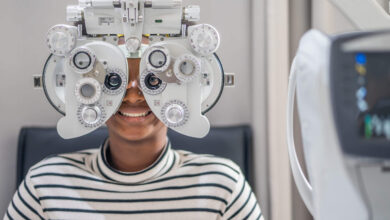Understanding the Role of Rehab Clinics for Depression

Questions Answered in This Article:
- Why Inpatient Care Is Sometimes the Best Option
- What Happens Inside a Depression Treatment Center
- How Residential Treatment Supports Long-Term Healing
- When to Consider Rehab for Suicidal Depression
When depression becomes unmanageable, especially alongside suicidal ideation or substance use, seeking structured care in a rehab setting can be life-saving. Rehab clinics for depression are designed to provide intensive, round-the-clock support in ways that outpatient care often cannot.
These clinics go beyond symptom control—they help stabilize mental health crises, build coping skills, and establish a foundation for long-term recovery. Many people arrive at depression rehab centers during some of their darkest moments, but through expert care and community support, they find a path forward.
Why Inpatient Care Is Sometimes the Best Option
While therapy and medication help many people manage depression, others need more structured support. Depression inpatient treatment centers provide a higher level of care—especially important when someone is experiencing frequent suicide attempts, severe functional decline, or is at risk of harming themselves.
These settings also help people with co-occurring disorders, such as alcohol addiction or drug or alcohol dependence. For someone battling both substance abuse and depressive symptoms, a traditional outpatient plan may not offer enough consistency or protection.
What Happens Inside a Depression Treatment Center
People often ask, what happens when a person goes to rehab? It’s more than just therapy. From the moment someone arrives, they are assessed by a clinical team who tailors a treatment plan specific to their mental health history, types of depression, co-occurring conditions, and emotional needs.
Daily life in a depression treatment center typically includes:
- Individual therapy sessions focused on root causes, trauma, or distorted thinking.
- Group therapy or support groups for peer connection and shared experience.
- Medication management, supervised by psychiatrists.
- Daily routines, healthy meals, and physical activity for mental wellness.
- Optional family therapy sessions to help loved ones better understand and support recovery.
This kind of holistic care helps stabilize symptoms, improve emotional regulation, and begin the process of healing.
How Residential Treatment Supports Long-Term Healing
Residential treatment for depression removes the chaos of everyday stressors. In these settings, clients live on-site with 24/7 clinical and emotional support. This allows time to focus entirely on recovery—without work deadlines, family pressure, or social triggers.
Structured rehab programs might last anywhere from 30 to 90 days, though the length of stay depends on individual needs. During this time, individuals participate in a mix of therapies and wellness activities designed to restore balance and build resilience.
One lesser-known benefit of residential care is the opportunity to practice skills in real time. People in treatment can rehearse what it means to set boundaries, manage emotions, or talk about painful experiences—all while receiving professional feedback in a safe space.
Choosing the Right Treatment Center for You
There’s no one-size-fits-all approach to depression recovery. Some treatment centers specialize in trauma-informed care, others in co-occurring substance abuse, and some offer faith-based or alternative healing programs. What matters most is that the environment feels safe, supportive, and equipped to meet your needs.
When researching treatment places for depression, consider:
- Accreditation and clinical credentials
- Staff-to-client ratio
- Options for family involvement
- Aftercare and transition planning
- Whether they treat rehab for suicidal depression and co-occurring conditions
Rock View Recovery, for example, provides evidence-based, luxury-level care in a supportive environment, with treatment tracks tailored to complex depression and addiction.
Reintegrating Into Daily Life After Rehab
Leaving rehab can feel overwhelming—but transition planning is part of every solid treatment plan. Many centers work closely with clients to ensure they step down to outpatient care or sober living options that keep them connected to structure and support.
Outpatient therapy, 12-step programs, or joining a support group can help individuals stay sober, especially if their depression was worsened by substance abuse or alcohol addiction. For those returning to jobs or caregiving roles, learning to set boundaries and build routines is essential to avoid relapse.
It’s important to note that recovery is a process. Depression doesn’t disappear overnight—but with continued care and the right environment, people can rebuild meaningful lives, relationships, and a strong sense of self.
When to Consider Rehab for Suicidal Depression
Sometimes the warning signs are subtle, but other times they’re loud: missed work, constant hopelessness, giving away possessions, or even direct suicide attempts. If you or someone you love is showing signs of a crisis, it may be time to consider rehab for suicidal depression.
Unlike a quick hospital stay, depression rehab offers extended time to work through the thoughts, triggers, and beliefs that drive suicidal ideation. Clients learn safety plans, healthy communication, and long-term tools to manage mental health.
Even if a person isn’t actively suicidal, rehab can help anyone stuck in deep depressive cycles—especially when outpatient care hasn’t been enough.
Supporting Family Members Through the Process
Families often suffer silently when a loved one struggles with depression. But family members play an essential role in the healing process. Many depression rehab centers include family education and therapy to help rebuild communication and trust.
During family therapy sessions, loved ones can ask questions, learn how to respond to depressive episodes, and understand the emotional toll depression takes. They also gain tools to set boundaries and care for themselves while supporting the person in recovery.
When the whole family is involved, the chances of long-term recovery—and restored relationships—increase dramatically.
Call a Rehab Clinic for Depression That Cares
The most effective rehab clinics for depression go beyond clinical care—they treat you like a whole person. At Rock View Recovery, clients receive personalized treatment in a supportive, human-centered environment. It’s a space where you’re not judged, but genuinely understood.
This kind of care is especially important for those dealing with suicidal thoughts, substance use, or feelings of deep isolation. Healing starts with feeling safe—and being seen. If you or someone you love is struggling, reach out today. Call (602) 878-9824 or email info@rockviewrecovery.com to talk with someone who truly cares.




